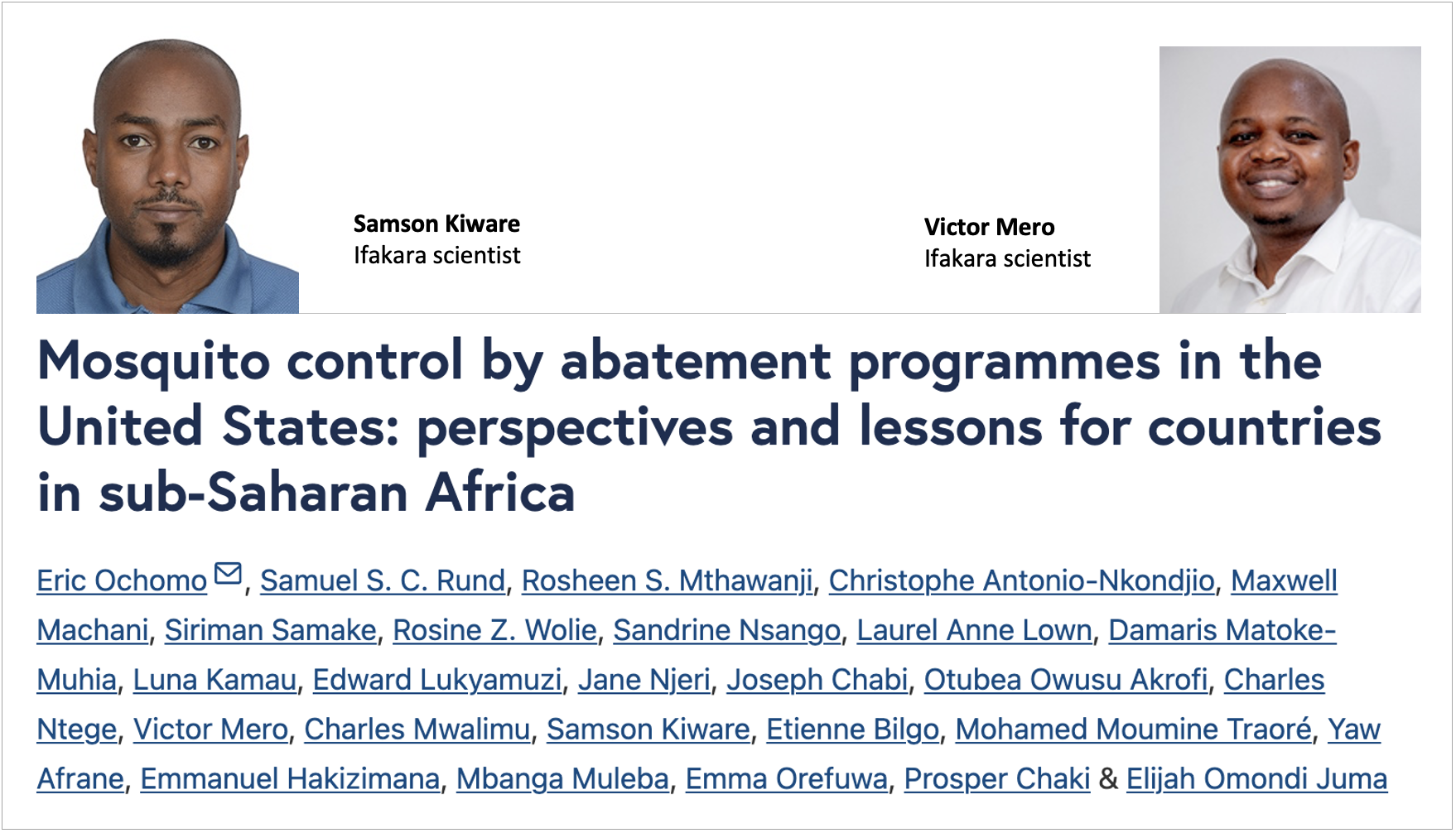
MALARIA WATCH: African experts gain insights from U.S. mosquito control strategies

After comparing mosquito control efforts in the United States and Sub-Saharan Africa (SSA), a group of African experts shared key findings that offer important lessons to improve mosquito control in SSA and reduce infection risks in the region.
Led by Eric Ochomo from the Kenya Medical Research Institute (KEMRI), the team, which included 26 colleagues from the USA and Africa, including Samson Kiware and Victor Mero from the Ifakara Health Institute, highlighted major differences in mosquito control approaches between the U.S. and SSA.
Lessons from two continents
The group of professionals studied the mosquito control efforts in the US between 2021 and 2022 as part of an exchange program initiated by the Pan-African Mosquito Control Association (PAMCA), the University of Notre Dame, and members of the American Mosquito Control Association (AMCA). The goal is to foster mutual learning and collaboration between the two regions.
In the research paper, published in the Malaria Journal on January 4, the authors document the observations, experiences, and lessons gathered by the African vector control professionals who participated in the exchange visits involving thirteen mosquito abatement districts across six states. They also analyze and compare mosquito control programs in the U.S. with those in SSA countries.
Centralized vs decentralized control
Africa and the US, both vast and diverse geographies, exhibit a wide range of ecologies, climates, and mosquito species diversity that significantly contribute to disease transmission and nuisance biting. The African delegation explored the US's multifaceted approach, where mosquito control operations are often decentralized, with implementation carried out at the state, county, or city level.
This decentralized model differs significantly from the centralized approach in sub-Saharan Africa, where vector control is organized nationally, primarily through disease control programs embedded within the central governments' ministries of health (MoHs). In these SSA countries, the primary focus is on reducing mosquito-borne diseases, particularly malaria, driven by the national malaria control programs (NMCP) or national malaria elimination programs (NMEP).
“There are important takeaways from the observations of the US mosquito control programmes which could contribute directly to SSA malaria control programmes. The decentralization of mosquito control programmes at the sub-national level, to the districts, counties and villages, would ensure they are tailored to local contexts in which they operate and explore local funding, innovation, and sustainable models.”
Cross-continental insights
Furthermore, the authors explore how mosquito control professionals from both continents can leverage their diverse expertise to optimize resources for strengthening mosquito surveillance and control operations. They document the governance systems and funding structures and identify areas of overlap in best practices in mosquito control between the two continents.
Revolutionizing control efforts
In conclusion, the authors also provide recommendations based on the US experiences that if incorporated, could transform malaria control efforts in Sub-Saharan Africa.
These recommendations include; (i) SSA countries conduct operational research on Larval Source Management (LSM), (ii) adopt community-centered IVM and surveillance approaches, (iii) adopt innovative manufacture and distribution of larvicides, (iv) house improvement for outdoor control, (v) adapt localized funding models for vector control, (vi) elevating public entomology and vector control approaches,(vii) decentralizing mosquito control operations in SSA countries and (viii) cross-border collaborations on vector surveillance and control.
Read the publication here.
